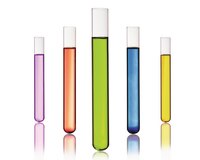818823 Sigma-AldrichSodium borohydride
Sodium borohydride (tablets) for synthesis. CAS No. 16940-66-2, EC Number 241-004-4.
More>> Sodium borohydride (tablets) for synthesis. CAS No. 16940-66-2, EC Number 241-004-4. Less<<Synonyms: Sodium tetrahydridoborate
Recommended Products
Overview
| Replacement Information |
|---|
Key Spec Table
| CAS # | EC Number | Hill Formula | Chemical Formula | Molar Mass |
|---|---|---|---|---|
| 16940-66-2 | 241-004-4 | H₄BNa | NaBH₄ | 37.83 g/mol |
Pricing & Availability
| Catalogue Number | Availability | Packaging | Qty/Pack | Price | Quantity | |
|---|---|---|---|---|---|---|
| 8188230100 |
|
Glass bottle | 100 g |
|
— |
| Description | |
|---|---|
| Catalogue Number | 818823 |
| Synonyms | Sodium tetrahydridoborate |
| References |
|---|
| Product Information | |
|---|---|
| CAS number | 16940-66-2 |
| EC number | 241-004-4 |
| Hill Formula | H₄BNa |
| Chemical formula | NaBH₄ |
| Molar Mass | 37.83 g/mol |
| HS Code | 2850 00 20 |
| Quality Level | MQ200 |
| Applications | |
|---|---|
| Application | Sodium borohydride (tablets) for synthesis. CAS No. 16940-66-2, EC Number 241-004-4. |
| Biological Information |
|---|
| Dimensions |
|---|
| Materials Information |
|---|
| Toxicological Information | |
|---|---|
| LD 50 oral | LD50 Rat 160 mg/kg |
| LD 50 dermal | LD50 Rabbit 230 mg/kg |
| Safety Information | |
|---|---|
| Categories of danger | highly flammable, toxic, corrosive |
| Product Usage Statements |
|---|
| Storage and Shipping Information | |
|---|---|
| Storage | Store below +30°C. |
| Packaging Information |
|---|
| Transport Information | |
|---|---|
| Declaration (railroad and road) ADR, RID | UN 1426 , 4.3, I |
| Declaration (transport by air) IATA-DGR | UN 1426 , 4.3, I |
| Declaration (transport by sea) IMDG-Code | UN 1426 , 4.3, I |
| Supplemental Information |
|---|
| Specifications | |
|---|---|
| Assay (hypochlorite) | ≥ 96.0 % |
| Identity (ICP-OES) | passes test |
| Global Trade Item Number | |
|---|---|
| Catalogue Number | GTIN |
| 8188230100 | 04022536446431 |
Documentation
Sodium borohydride SDS
| Title |
|---|
Sodium borohydride Certificates of Analysis
| Product Number | Packaging | Specification | Lot Number |
|---|---|---|---|
| 8188230100 | Glass bottle | PDF Specification Document |











